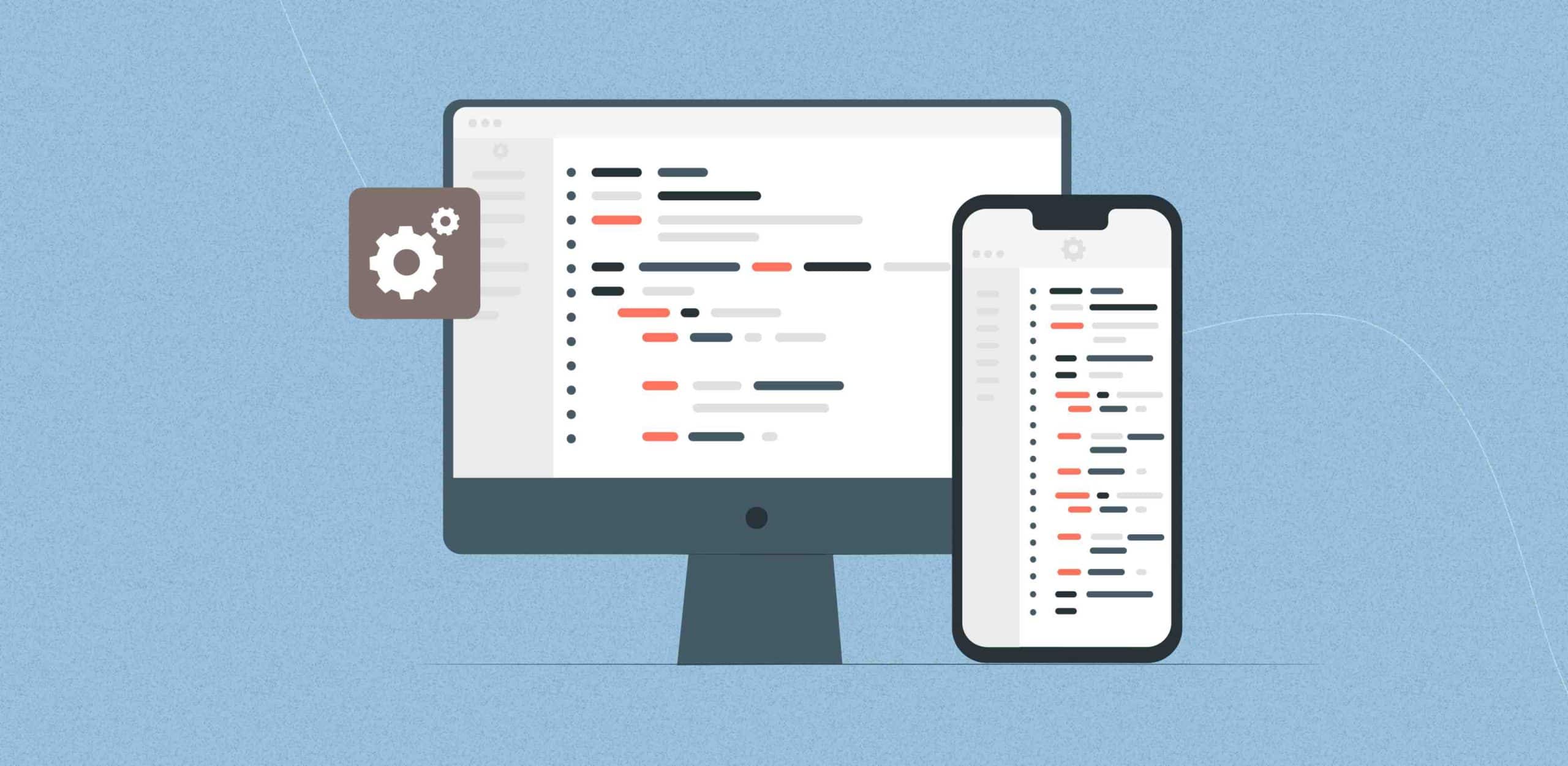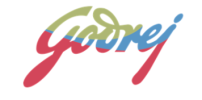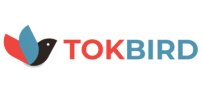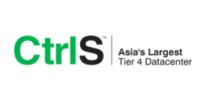eLearning app development has emerged as a cornerstone of modern education, revolutionizing how learners access content in schools, universities, and workplaces. With the rapid shift toward digital and remote learning, businesses and institutions are racing to create impactful eLearning solutions that engage users and deliver measurable results. From interactive course modules to AI-driven personalization, eLearning applications are shaping the future of education and training across the globe.
However, building a high-performing eLearning app goes far beyond a great concept or sleek design. The success of your platform largely hinges on choosing the right eLearning app development company—one that understands your goals, target audience, and the technical intricacies required to bring your vision to life.
In this blog, we’ll walk you through the key considerations for a successful eLearning application, highlight the importance of selecting the right development partner, and uncover the top red flags to watch out for when hiring an eLearning development company.
Key Considerations for a Successful eLearning App Development
Before diving into the red flags to avoid, it’s crucial to understand what sets a successful eLearning application development apart in today’s competitive digital landscape. Whether you’re planning to build an online education app for K-12 learners, a gamified course platform for skill development, or a corporate learning management system (LMS) for employee training, your platform must combine technology, pedagogy, and user experience to truly deliver value.
Choose the right eLearning App Development Company for your project. Read the blog to know more.
Here are the key pillars that contribute to a high-performing elearning app development project:
User-Centric Design
The foundation of any successful elearning application lies in its design. A user-centric interface ensures that learners can intuitively navigate through content, interact with lessons, and complete assessments without friction.
- Accessibility: Design must adhere to WCAG guidelines to accommodate all users, including those with disabilities.
- Simplicity: Avoid overwhelming learners with too many features at once. A clean and structured layout improves retention and engagement.
- Interactivity: Incorporate animations, quizzes, videos, and simulations to make learning active rather than passive.
- Consistency: Maintain uniform design elements across screens and devices for a seamless experience.
A compelling UI/UX not only enhances engagement but also reduces drop-off rates, especially in long-term learning programs.
Content Personalization
Personalization is no longer a luxury—it’s a necessity in education app development. Learners come with different skill levels, learning styles, and goals. A one-size-fits-all approach can be ineffective and disengaging.
- Adaptive Learning Paths: Use algorithms to recommend lessons based on user performance and preferences.
- Microlearning Modules: Break down complex content into small, digestible lessons tailored to the learner’s pace.
- Progress Tracking: Visual dashboards showing individual performance, scores, and progress encourage motivation.
- Gamification: Offer badges, points, and leaderboards based on personalized milestones.
By adapting content to individual learners, your elearning app can maximize outcomes and satisfaction.
Robust Back-End Architecture
A sleek front-end must be backed by a powerful, scalable, and secure back-end infrastructure to ensure your app runs smoothly under any conditions.
Scalability: Your application should handle increasing numbers of users, courses, and data without performance issues.
- Multi-role Access: Support various user roles like learners, instructors, admins, and parents, each with customized access levels.
- Content Management System (CMS): A flexible backend CMS allows course creators to upload, modify, and manage content without coding knowledge.
- Secure Authentication: Implement multi-factor authentication, encryption, and secure session management to protect user data.
A strong back-end architecture ensures long-term sustainability and hassle-free operation of your elearning app development services.
Offline Accessibility & Mobile Compatibility
With the global surge in mobile device usage, your online education app must be mobile-friendly—and even better, offer offline access.
- Mobile-First Approach: Design and develop the app with smartphones and tablets as the primary devices in mind.
- Native or Hybrid Development: Use technologies like React Native or Flutter to ensure smooth performance across Android and iOS.
- Offline Mode: Allow learners to download content and continue learning without internet connectivity, syncing data once back online.
Mobile compatibility and offline access expand your app’s reach and ensure uninterrupted learning, especially in remote or bandwidth-restricted areas.
LMS & Third-Party API Integration
A standalone app limits your growth. A successful elearning application must integrate seamlessly with Learning Management Systems and essential third-party tools.
- LMS Integration: Ensure your platform can integrate with existing LMS like Moodle, Blackboard, or TalentLMS for better scalability.
- Payment Gateway Integration: Enable smooth transactions for subscriptions, course purchases, and in-app purchases.
- Video Conferencing Tools: Integrate with platforms like Zoom, Google Meet, or Microsoft Teams for live classes or webinars.
- Analytics & CRM: Use tools like Google Analytics or Mixpanel for tracking, and CRMs like HubSpot or Salesforce for lead management.
These integrations streamline operations, enhance user experience, and allow better data-driven decision-making.
Data Security & Compliance
Trust is a non-negotiable factor when dealing with user data—especially in education. Your elearning app development company must prioritize compliance and security from day one.
- Data Privacy: Follow GDPR (for Europe), COPPA (for children in the U.S.), and other local regulations to ensure legal operation.
- Secure Data Storage: Encrypt data at rest and in transit. Use secure cloud storage solutions with access controls.
- Regular Security Audits: Periodically assess vulnerabilities and apply patches or updates.
- User Consent & Permissions: Clearly inform users of data collection practices and obtain consent before collecting personal information.
Compliance protects your organization legally and boosts user confidence in your elearning app development services.
Let us help you create a high-impact elearning application that engages, educates, and evolves with your audience.
Why Choosing the Right eLearning Development Company Matters
Choosing the right eLearning app development company is not just a technical decision—it’s a strategic one that can determine the overall success or failure of your digital learning platform. Whether you’re launching a mobile-first online education app, a corporate training solution, or a custom LMS, the development partner you select plays a pivotal role in shaping your product’s quality, performance, and long-term viability.
A reliable and experienced custom eLearning app development company brings more to the table than just coding skills. Here’s how the right partner can transform your vision into a scalable and successful eLearning application:
Technical Expertise in Scalable Architecture
A competent eLearning development team possesses deep technical knowledge in architecting robust, high-performance applications. They understand the importance of creating scalable back-end systems that can handle growing user bases, real-time interactions, and complex learning workflows without compromising performance.
They are proficient in:
- Mobile and web app development using modern frameworks like Flutter, React Native, Angular, and Node.js.
- Cloud-based deployments for scalability and global reach.
- Integration with third-party tools such as LMS platforms, video conferencing SDKs, CRMs, and analytics tools.
- Implementing data security, user authentication, and role-based access control.
This ensures your elearning application performs reliably under varied conditions and is ready to scale as your audience grows.
Deep Understanding of EdTech and Instructional Design
eLearning isn’t just about building software—it’s about creating meaningful learning experiences. A good development company is well-versed in:
- Instructional design principles that guide how content is structured for optimal retention.
- Learner psychology, including engagement techniques like gamification, microlearning, and adaptive learning.
- Education standards and compliance, such as SCORM, xAPI, AICC, WCAG accessibility, and GDPR.
With this expertise, the team can ensure your app not only works well but also meets learning objectives and delivers measurable educational outcomes.
User-Centered Design for High Engagement
Design can make or break user engagement. The right company will focus heavily on creating a seamless and intuitive user interface (UI) and an engaging user experience (UX) tailored to your learners’ needs.
Expect them to deliver:
- Interactive elements (quizzes, simulations, video overlays).
- Gamified features (badges, progress tracking, leaderboards).
- Mobile-first responsive design for smooth usage across devices.
- Accessible design for users with disabilities.
They’ll also test and refine designs based on real user feedback, making the platform enjoyable and effective for all.
Flexibility and Agility to Evolve with Market Needs
EdTech is a fast-changing industry. Your development partner must be agile enough to adapt to new trends, user expectations, and business strategies. The right elearning app development company works closely with you in agile sprints, allowing for:
- Quick iterations and feature updates
- Real-time collaboration and feedback loops
- Easy pivoting when market conditions or priorities change
This flexibility ensures your app stays relevant and competitive in an ever-evolving landscape.
Long-Term Support and Maintenance
Building the app is just the beginning. You need a partner who offers long-term support to handle:
- Bug fixes and security patches.
- Performance optimization.
- Feature enhancements based on user data and feedback.
- Technical documentation and handover assistance.
Without a solid maintenance plan, your app could become outdated or vulnerable over time. A trustworthy vendor will offer clear support terms and ongoing assistance to keep your online education app performing optimally.
The Cost of Choosing the Wrong Partner
On the flip side, partnering with an inexperienced or unreliable development company can result in significant setbacks. Common risks include:
- Overpromising and underdelivering on features or timelines.
- Poor code quality leading to performance issues or security vulnerabilities.
- Lack of understanding of educational objectives, resulting in a product that fails to engage or educate.
- Unexpected costs due to unclear pricing or change requests.
- Minimal or no support after launch.
Not only does this impact your return on investment, but it can also damage your brand reputation and erode trust among learners and stakeholders.
Know the benefits of Custom Elearning App Development Services for Universities and Corporates.
So How Do You Identify Warning Signs Before It’s Too Late?
Understanding the top red flags when evaluating potential development partners is the first step toward avoiding costly mistakes. In the next section, we’ll explore the most common warning signs that indicate a vendor may not be the right fit for your eLearning project.
By knowing what to look for—and what to avoid—you can make informed decisions that set your eLearning platform up for long-term success.
Top Red Flags to Watch Out for an eLearning Development Company
Choosing the right eLearning app development company is one of the most critical decisions in your digital learning journey. While many vendors offer attractive pricing and appealing portfolios, not all deliver quality, customization, or long-term reliability. Identifying potential red flags early can save you from costly delays, poor user experience, or even a complete project overhaul.
Here are the top warning signs you should never ignore when selecting a partner for eLearning app development services:
No Portfolio or Case Studies in eLearning
A strong portfolio is your first line of validation when assessing a company’s capabilities. If a vendor lacks real-world examples of education app development, especially in your niche (e.g., K-12, higher education, corporate training), it’s a red flag.
Case studies demonstrate more than technical skill—they show an understanding of instructional design, user engagement, and successful delivery. Always ask for case studies, client testimonials, or demo access to previously developed apps. A company with a proven track record in eLearning app development will be proud to showcase their achievements.
Poor Communication and Delayed Responses
Effective communication is crucial throughout the development lifecycle. During the discovery and proposal phase, if a vendor takes too long to respond, provides incomplete answers, or avoids addressing concerns directly, these are early signs of trouble.
Poor communication often leads to misunderstandings, missed deadlines, and lack of accountability. A reliable elearning app development company will assign a dedicated project manager or coordinator who keeps you informed with regular updates, meetings, and transparent documentation.
One-Size-Fits-All Solutions
Every eLearning platform has unique goals, audience segments, content types, and engagement needs. If a vendor insists on using cookie-cutter templates or offers limited customization, they may lack the flexibility or creativity to serve your specific use case.
Generic solutions may reduce initial development time, but they rarely align with learner expectations or offer long-term scalability. Your app should be tailored for your learners—not forced into a rigid mold. A quality education app development company will prioritize custom functionality, learner-centric design, and your strategic objectives.
Unclear Pricing or Hidden Costs
Transparency in pricing is a hallmark of a trustworthy development partner. If a company provides a vague estimate without detailed deliverables, avoids discussing maintenance costs, or introduces last-minute fees, it’s a major red flag.
Request a clear cost breakdown covering design, development, testing, deployment, third-party integrations, and post-launch support. Compare this with industry benchmarks and verify if they offer flexible engagement models—fixed, milestone-based, or time & material.
Lack of Instructional Design Expertise
An eLearning application isn’t just about writing code—it’s about delivering meaningful learning experiences. If the development team lacks instructional designers, education consultants, or content strategists, the app may fall flat in terms of usability, engagement, and knowledge retention.
Instructional design is vital for organizing content into digestible, interactive, and pedagogically sound formats. Without this expertise, your platform may fail to meet the learning goals it was built for.
Outdated Tech Stack or No Mobile Experience
Modern learners demand accessibility across devices, especially mobile. If a vendor’s proposed tech stack includes obsolete technologies or they lack experience in mobile development frameworks like Flutter, React Native, or Swift/Java, it could limit your app’s performance and reach.
Your online education app must be mobile-first, responsive, and support offline access if needed. A cutting-edge stack ensures better performance, scalability, and future-proofing for your investment.
No Focus on Compliance or Accessibility
Compliance is not optional—it’s a legal and functional requirement. If a vendor doesn’t account for WCAG accessibility standards (essential for learners with disabilities), GDPR (data privacy), or eLearning standards like SCORM/xAPI, your platform could face serious issues post-launch.
These standards ensure your elearning app development project is inclusive, secure, and interoperable with Learning Management Systems (LMSs). Ask specific questions about how they implement these in past projects.
Negative or No Client Reviews
In today’s digital age, reputation is everything. If a company has little to no presence on review sites like Clutch, GoodFirms, or even Google, it may indicate inexperience or past failures.
Additionally, watch out for fake or overly generic testimonials on their website. Verified reviews from independent platforms and the ability to connect with past clients speak volumes about their credibility and professionalism.
Vague Timelines and Poor Project Management
A successful elearning app development process depends on proper planning and disciplined execution. If a company avoids committing to timelines, fails to share a project roadmap, or seems disorganized in initial meetings, it’s likely they lack mature project management practices.
A trustworthy vendor will use Agile or Scrum methodologies, define milestones, set sprint goals, and communicate delays or blockers proactively. Project visibility is key to delivering on time and within budget.
No Post-Launch Support or Maintenance
Your journey doesn’t end when the app goes live. In fact, the post-launch phase often involves updates, feature enhancements, bug fixes, and user feedback analysis.
If the company doesn’t offer a structured support or maintenance plan, it indicates a short-term mindset. A forward-thinking elearning app development company will provide SLAs (Service Level Agreements), periodic maintenance, and even assistance in scaling your app as your user base grows.
Here’s a comprehensive guide E-Learning App Development trends and best practices.
How to Choose a Reliable eLearning Development Partner?
Choosing a trustworthy and capable eLearning app development company is one of the most important decisions you’ll make for your project. Beyond technical skill, the right partner should align with your goals, understand your target learners, and bring deep expertise in education technology. This section outlines the key qualities and criteria to consider when evaluating potential development vendors—so you can ensure your investment leads to a powerful, scalable, and engaging eLearning application.
Here’s what you should look for when choosing a reliable partner:
Check Their EdTech Experience
Experience in the education domain is non-negotiable. Developing an eLearning app is very different from building a typical mobile or web app. A seasoned eLearning app development company should have a solid portfolio that includes diverse projects across various educational sectors—such as K-12 learning apps, higher education portals, professional certification platforms, compliance training tools, and corporate LMS systems.
- Ask for case studies that demonstrate how they solved real-world problems for educational clients.
- Review any demo apps or product walkthroughs they can share.
- Explore contributions to open-source EdTech tools on GitHub or other repositories, if available.
A vendor with domain-specific knowledge will better understand instructional design, gamification, assessments, learner engagement, and compliance requirements—giving you a huge advantage in creating an impactful solution.
Review Their Tech Stack
Your eLearning app’s success depends greatly on the technologies it’s built with. A modern and robust tech stack ensures performance, scalability, and ease of integration with third-party tools. The development company should be proficient in:
- Frontend frameworks: React, Angular, or Vue.js for web apps
- Backend technologies: Node.js, Python (Django/Flask), or PHP (Laravel)
- Mobile development: Flutter, React Native, Kotlin, or Swift
- Database solutions: PostgreSQL, MongoDB, Firebase
- Cloud deployment: AWS, Google Cloud, Microsoft Azure
- LMS & EdTech integrations: SCORM, xAPI, Moodle, Zoom SDK, Google Classroom APIs
Make sure they understand cross-platform development, real-time communication, and data security protocols—especially when handling sensitive learner data.
Evaluate UI/UX Design Capabilities
Design isn’t just about how your app looks—it’s about how it feels, flows, and functions. For an elearning application, intuitive design is key to maintaining learner focus and engagement. The company should be able to:
- Present wireframes or prototypes that reflect a deep understanding of learner journeys.
- Follow WCAG accessibility guidelines to ensure the app is usable by individuals with disabilities.
- Incorporate gamification, visual storytelling, and microinteractions to keep learners engaged.
Ask to see design mockups from past projects or have them prepare a sample screen based on your vision. A strong focus on usability testing and iterative design processes is also a great sign.
Look for Agile Methodology
The best eLearning app development services follow agile practices that promote flexibility, speed, and collaboration. Agile development allows your team to:
- Break down the project into manageable sprints with clear goals.
- Review progress frequently through demos or sprint reviews.
- Provide continuous feedback, resulting in a better-aligned final product.
- Adapt quickly to market changes or internal shifts.
Ask the vendor how they manage their agile process—whether they use Scrum, Kanban, or a hybrid—and how you, as the client, will be involved in each sprint cycle.
Request Client References
Reputation matters. A company that delivers real value will have no issue connecting you with past or current clients. Talking to existing clients will give you valuable insights into the vendor’s:
- Reliability and responsiveness
- Adherence to deadlines and budgets
- Problem-solving and change management
- Post-launch support and collaboration
Also, check third-party review platforms like Clutch, GoodFirms, or Google Reviews to verify their credibility and read independent feedback.
Ask About Support & Scaling
Building your elearning app is only the beginning. As your user base grows, your app will need to:
- Handle increased traffic and user activity
- Receive regular updates and new features
- Address security vulnerabilities
- Integrate with new technologies or LMS platforms
Ask the development company about their post-launch support plans, including SLAs (Service Level Agreements), update cycles, bug fixing policies, and system monitoring. Also, ensure they can help with scaling infrastructure as needed—especially if you plan to serve thousands of concurrent users.
Get to know the top features to look for in Custom E-learning App Development Services.
Conclusion
In the competitive landscape of digital learning, selecting the right eLearning app development company can make or break your platform’s success. While flashy presentations and low-cost estimates may tempt you, it’s vital to look deeper and watch out for red flags that could derail your vision.
A successful elearning application is the result of strategic planning, learner-focused design, robust engineering, and ongoing support. Avoid vendors who lack transparency, industry knowledge, or the willingness to understand your goals.
Instead, partner with a trusted eLearning app development team that brings innovation, reliability, and experience to the table.
Let’s transform your business for a change that matters.
F. A. Q.
Do you have additional questions?
What is eLearning app development?
eLearning app development refers to the process of designing and building mobile or web applications specifically for delivering educational content, training programs, or learning experiences online. These apps may include features such as video lessons, quizzes, interactive content, gamification, and progress tracking.
Why is choosing the right eLearning app development company important?
The success of your eLearning platform depends on the capabilities of your development partner. A reliable elearning app development company ensures your product is scalable, engaging, and meets instructional design standards, while a poor choice can lead to delays, bugs, and ineffective learning experiences.
What are the key features of a successful eLearning application?
A successful elearning application should offer user-friendly design, mobile compatibility, interactive learning content, performance analytics, secure login, offline access, and integration with third-party tools such as LMS platforms and video conferencing tools.
How do I evaluate an eLearning app development company’s experience?
Look for their portfolio in education app development, client testimonials, case studies, and past eLearning projects. Experience in building K-12, corporate training, or higher education platforms is a good indicator of domain knowledge and technical expertise.
What technologies should an eLearning development company be familiar with?
An expert team should use modern frameworks like React, Node.js, Flutter, or Python. They should also offer cloud deployment, LMS integration, support for SCORM/xAPI, and understand accessibility and compliance standards like WCAG and GDPR.
What red flags should I watch out for when hiring an eLearning app developer?
Some of the biggest red flags include lack of a portfolio, poor communication, vague timelines, outdated technology stack, hidden costs, absence of support services, and limited understanding of instructional design principles.
How much does it cost to develop an eLearning app?
The cost of elearning app development services can vary widely depending on app complexity, features, platforms (iOS, Android, Web), UI/UX design, and the vendor’s location.
What is the difference between off-the-shelf and custom eLearning applications?
Off-the-shelf solutions are ready-made and may not meet your unique learning needs. Custom eLearning applications are built from the ground up, tailored to your content, users, and goals, offering more flexibility and better learner engagement.
Should my eLearning app include mobile support?
Absolutely. Today’s learners prefer mobile access for learning on-the-go. Your online education app should be mobile-responsive or offer a dedicated app for Android and iOS to ensure accessibility and user retention.
What kind of post-launch support should I expect from an eLearning app development company?
A dependable company should offer ongoing maintenance, bug fixes, feature enhancements, scaling support, and security updates. Long-term support ensures your elearning app continues to function smoothly and evolves with your users’ needs.













